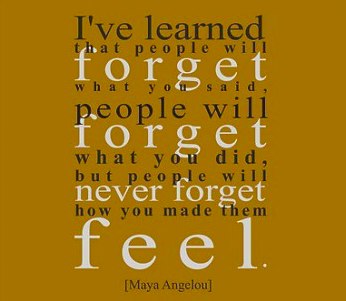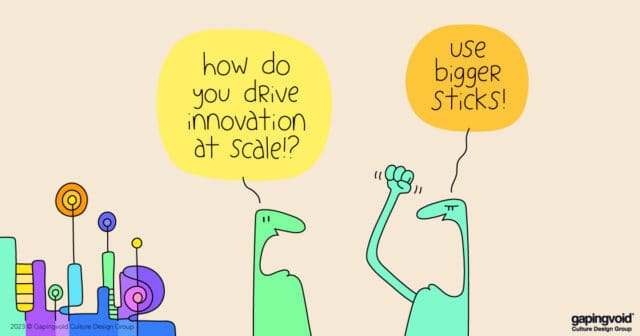[Today’s guest post, “It Takes Empathy” is from my good friend, Brian Solis, co-principal at Altimeter Group and author of the book, “The End Of Business As Usual”.]
If you look at the picture above, you might see a sunset. Some of you will see a sunrise. Much like the famous philosophical discourse between skeptics and optimists, a glass can only be either half empty or half full. I believe nonetheless
that the above picture is that of a sunrise. I’m an optimist. I also believe that a glass is reflective of its current state. Either you just poured into or poured out of it.
Otherwise, it’s a glass with water sitting at the half-way mark.
This theoretical circle of dissension is constant and without the ability to achieve closure or satisfaction. It all comes down to perspective.
That’s why in a time where we’re actively pushed out of our comfort zones, perspective is a powerful enabler.
For those struggling with where to steer the ship of transformation, this is for you.
What it is you see. What it is you feel. Where it is you want to go and why. These are the things that matter. The gift of perspective is matched only by the gift of perseverance. As you seek to change or improve “what is” and set out to bring “what could be” to life, you will be met by the champions of mediocrity who do not wish to align with your vision. Remember, it is passion and persistence that outlasts resistance. But, it takes courage… It takes courage to endeavor in a new direction where you’re greatest allies, passion, hope, vision and optimism, are consequential yet intangible. Their value however, is well, in the eye, heart, and mind of the beholder.
Change is invertible. But, how change “changes” your reality isn’t as explicit or defined as it is affected by evolutionary forces of which you play an important part.
I find that the harder I work, the more luck I seem to have” -Thomas Jefferson
There’s a difference between management and leadership. There’s a difference between pioneering and following. There’s a difference between exploring possibilities and chasing them.
This is a time when there are more questions than answers. You are not alone, however. For without questions, we wander through life assuming we either already have the answers or we underestimate the value of rethinking what we know.
Direction, inspiration, need, aspiration… these are individually or collectively among the emotional drivers that become catalysts for change. The minute you say the word “emotion” however, your mission or case suddenly suffers or loses crediblity.
Emotions are after all, soft, intangible, and in of themselves, not true sparks for transformation right? Wrong.
Let me ask you something…
How are you?
I have a point, I promise.
Again, how are you?
To answer, you might say, “fine,” “good” or “well thanks for asking.” The exchange is more of a casual ice-breaker of sorts and not necessarily a genuine invitation to share any form of emotional depth. The question is often relegated to a verbal handshake, a necessary ritual to begin a conversation. That’s my point. Today, organizations in large part, take emotion for granted. “How was our service today?”
It’s a superficial exchange that sets impressions for the moment rather than investing in long-term experiences.
Now, what if I asked you, “how are you feeling?”
Add one word and you unlock a vault of emotion and valuable dialogue. In a social economy where paying it forward and reciprocity serve as the currency of relationships, emotional exchanges form strong ties. It takes asking, listening, and responding to instill trust and a sense of meaning into any engagement. What you walk away with however is priceless; for you now have felt empathy. And, empathy is the secret ingredient to feeling the need for transformation…the inspiration to find a creative or passionate spark to design new and significant experiences.
The key for you however, is to package what it is you feel and translate it into a set of relatable and relevant objectives, pragmatic steps in how to achieve them, and defined metrics that demonstrate progress and performance. Your inspiration will at some point inspire others around you and they will feel it as a result of your work.
The truth is that the answers you seek lie in engagement, listening, and the empathy that surfaces as a result. Leadership unfolds in how you translate what you learn and feel into appreciation and understanding. The state of sentiment as experienced and expressed by those that matter to you directly correlates to the state of relationships.
Leadership begins with a vision for not only where you want to go, but why it’s important to those you care about.
In a world where we’re taught the importance of monitoring and measuring sentiment with the new tools before us, we miss the essential ingredient to meaningful relationships…empathy. Once you listen, not monitor, but truly listen to customer activity and observe online behavior, you cannot help but feel both empathy and harmony. And naturally, the response it begets is only human.





